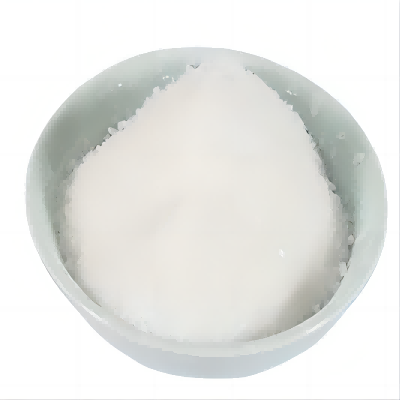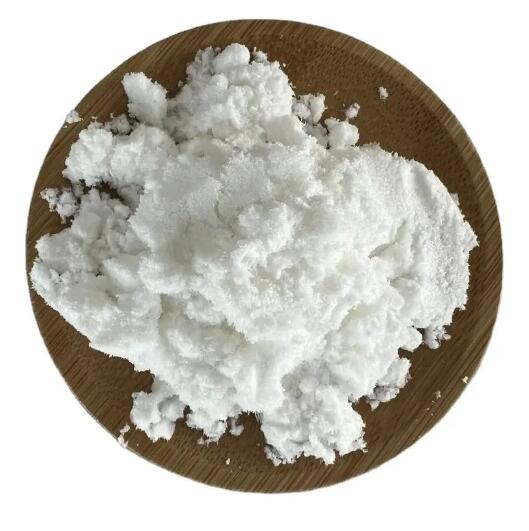Soursop , also known as graviola fruit, may offer benefits for cancer, including prostate, breast, colorectal, and pancreatic cancers. Research shows it may have anticancer properties, but evidence for prevention or treatment is not yet conclusive.
Results from lab and animal studies are promising for soursop's role in cancer, but research evidence in humans is lacking. The fruit is generally safe to eat, but there are concerns for people living with diabetes and other conditions. Organic Garlic Powder

This article presents information about soursop and what is known about its medicinal properties. It also discusses the risks in choosing this alternative treatment for cancer.
It's important to remember that the research evidence on using soursop in cancer prevention or treatment is limited. As with other botanicals, supplements, and alternative medicine options for cancer care, be sure to discuss their use with your healthcare provider.
Soursop (Annona muricata) is a fruit found mainly in the rainforest of Southeast Asia, South America, and Africa. It is green with a prickly outer texture and a soft and creamy internal texture. The taste is commonly compared to a strawberry or pineapple.
In America, the fruit is most widely known as soursop. Other names include custard apple, cherimoya , guanabana , and Brazilian pawpaw.
Soursop can be consumed as a fresh fruit, supplement, and tea. It can also be consumed as an ingredient in jelly, ice cream, and juice.
Soursop has many nutritional benefits. The fruit provides:
It's high in antioxidant properties and more. Claims about its benefits include treating fevers, managing hypertension, improving sleep and reducing inflammation. For cancer, it is used as a popular herbal remedy in other parts of the world.
It has anti-inflammatory, antioxidant, and antibacterial properties that may help to treat certain ailments. It's also a traditional remedy for edema (swelling), arthritis, depression, asthma, and more.
Soursop is typically eaten raw by cutting the fruit in half and scooping out the flesh. You can also incorporate soursop into syrups, smoothies, and desserts such as ice creams, candies, and sweet beverages. The leaves can also be used to make a tea.
Keep in mind that there is no evidence of soursop's benefit in fighting cancer in humans. What is known is that soursop contains many phytochemicals , compounds known to have anticancer effects.
Research also shows that soursop has natural cytotoxicity effects. For cancer patients, chemotherapy and radiation therapy are cytotoxic therapies (meaning they kill cancer cells). The fruit also has an ability to reduce the cell growth on a number of cancer cell lines, including breast, lung, pancreatic, prostate, ovarian, and colorectal cancers.
There is not enough human data to support anticancer claims about soursop. However, any drugs developed from compounds in the soursop plant are likely to be more effective than simply consuming the fruit or tea made from its leaves.
In the United States, breast cancer is known as the most frequently diagnosed cancer (apart from skin cancer) and is the second-leading cause of cancer deaths in women.
In a study in mice, researchers found that the leaves from soursop showed an anticancer effect on breast cancer cell lines. Studies have also shown that extracts from soursop can aid in destroying cells that are resistant to specific chemotherapy drugs. Although these were promising results, researchers concluded that more studies are needed.
Prostate cancer is the second-leading cause of cancer death in men. A recent study showed that soursop has an anticancer effect on prostate cancer cells in mice. Further studies need to be conducted to show whether or not it is effective in humans.
Colorectal cancer is now the second-leading cause of cancer-related deaths overall. The leaf extract of soursop has showed anticancer properties against a cell line, restricting of migration, and cytotoxicity against certain cells. Again, more research is needed to validate these claims.
Pancreatic cancer is expected to be the third-leading cause of cancer-related deaths in 2023. Studies show that pancreatic tumors are resistant to conventional chemotherapies and radiotherapies. Many diagnoses are already in the advanced stages because the disease often presents with no specific early clinical symptoms.
Research studies have reported soursop extract shows promise for pancreatic cancer therapeutics due to its anti-tumor characteristics.
Overall, although soursop contains agents that may help protect against certain cancer cells, more research is needed on cancer treatment in humans. Alternative medicine should always be considered as a supplement and not a replacement for standard therapies.
There are some risks to using soursop. Its long-term use could lead to toxicity in the liver and kidneys. At least one study has confirmed its neurotoxin properties.
Soursop is also known to lower blood pressure as well as blood sugar, so it should not be taken by people on blood pressure medications or who have diabetes.
You are taking any blood pressure medication, are pregnant and/or breastfeeding, or have kidney or liver problems or diabetes.
Soursop is a fruit used in alternative medicine around the world. Recent studies have focused on its use in humans, and properties that suggest it might help to treat or prevent cancer.
The research evidence for these health benefits is limited, but soursop does show promise in treating certain health conditions. It's generally considered safe to eat or use as an extract, but there are cautions for certain people, including those with high blood pressure and diabetes.
As with any supplements or other alternative medicine options, speak to your healthcare provider about soursop before using it.
Rady I, Bloch MB, Chamcheu RN, Banang Mbeumi S, Anwar MR, Mohamed H, et al. Anticancer properties of graviola (Annona muricata): a comprehensive mechanistic review. Oxid Med Cell Longev. 2018;2018:1826170. doi:10.1155/2018/1826170
Memorial Sloan Kettering Cancer Center. Graviola.
Asif Khurshid Qazi, Jawed A Siddiqui, Rahat Jahan, Sanjib Chaudhary, Larry A Walker, Zafar Sayed, Dwight T Jones, Surinder K Batra, Muzafar A Macha, Emerging therapeutic potential of graviola and its constituents in cancers. Carcinogenesis.
FoodData Central. U.S Department of Agriculture. Soursop, raw.
Lady SGCancer: forbidden concerns?Contemp Clin Dent.2015;6(1):3-4.doi:10.4103/0976-237X.149282
Journal of Pharmacognosy and Phytochemistry A review on a miracle fruits of Annona muricata.
Ioannis P, Anastasis S, Andreas Y. Graviola: A systematic review on its anticancer properties. Am J Cancer Prev. 2015;3(6):128-131. doi:10.12691/ajcp-3-6-5.
American Cancer Society. About Breast Cancer.
Syed Najmuddin SU, Romli MF, Hamid M, Alitheen NB, Nik Abd Rahman NM. Anti-cancer effect of Annona Muricata Linn Leaves Crude Extract (AMCE) on breast cancer cell line. BMC Complement Altern Med 16, 311 (2016). https://doi.org/10.1186/s12906-016-1290-y
American Cancer Society. Key statistics for prostate cancer.
Deep G, Kumar R, Jain AK, Dhar D, Panigrahi GK, Hussain A, et al. Graviola inhibits hypoxia-induced NADPH oxidase activity in prostate cancer cells reducing their proliferation and clonogenicity. Scientific Reports. 2016;6(1):23135.
American Cancer Society. Cancer statistics center.
Chan WJ, McLachlan AJ, Hanrahan JR, Harnett JE. The safety and tolerability of Annona muricata leaf extract: a systematic review. J Pharm Pharmacol. 2020 Jan;72(1):1-16. doi:10.1111/jphp.13182.
By Yvelette Stines Yvelette Stines, MS, MEd, is an author, writer, and communications specialist specializing in health and wellness.
Thank you, {{form.email}}, for signing up.

14218-11-2 There was an error. Please try again.